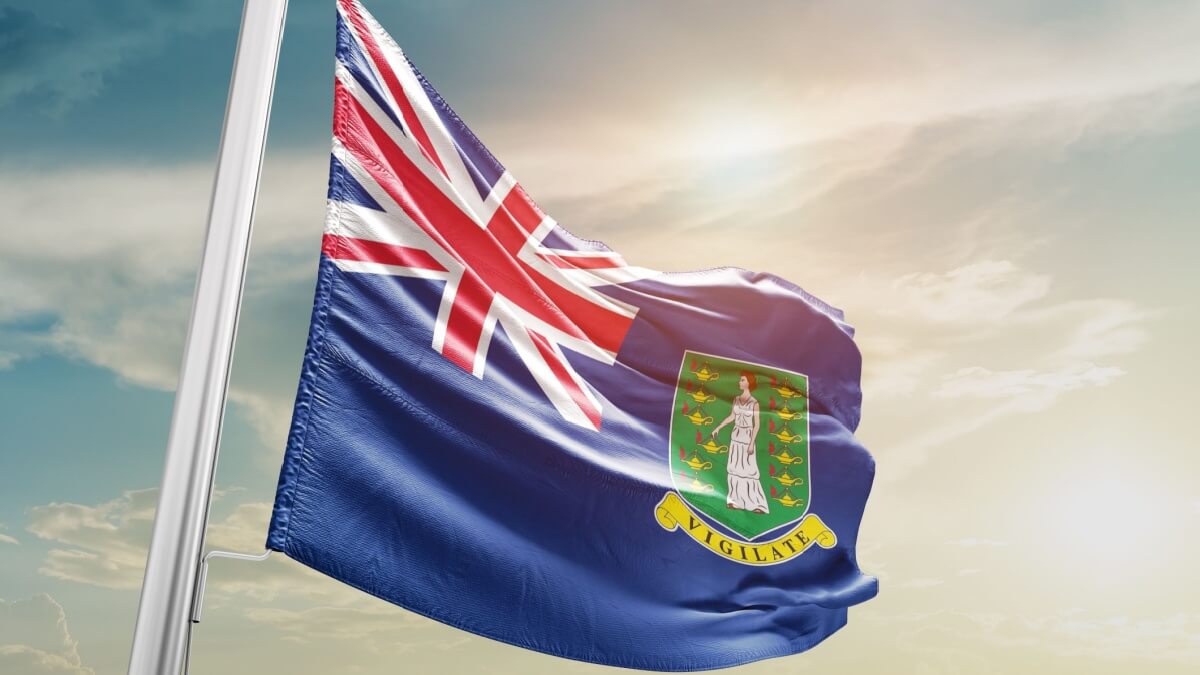How to Start a Business in Poland from the UK
An essential guide on how to start a business in Poland from the UK, including info on getting on the company register in Poland.

Expanding your business to the British Virgin Islands (BVI)? Understanding the corporate tax landscape is crucial for making informed decisions about your international operations.
The BVI operates as a unique offshore financial centre with distinctive tax arrangements that have made it a popular jurisdiction for international businesses. Whether you're considering incorporation or expanding existing operations, knowing the tax implications will help you plan effectively and ensure compliance with local regulations. Wise Business can help streamline your financial operations with local currency accounts and cost-effective international transfers.
💡 Learn more about Wise Business
This publication is provided for general information purposes and does not constitute legal, tax, or other professional advice from Wise Payments Limited, its subsidiaries or affiliates, and it is not intended as a substitute for obtaining business advice from a tax advisor or any other professional.
The British Virgin Islands maintains a 0% corporate income tax rate for most business entities incorporated in the territory. This zero-tax regime applies to BVI Business Companies (the standard corporate structure) that conduct business outside of the British Virgin Islands, making it one of the most tax-efficient jurisdictions globally.1
However, it’s important to note that while there is no corporate income tax, BVI companies are subject to annual government fees and compliance obligations. Companies with authorised share capital up to 50,000 shares pay US$ 550 annually, while those with higher authorised capitalisation pay US$ 1,350.2 In addition, companies must comply with beneficial ownership filing requirements, which carry filing fees and meet economic substance rules where relevant.3
The absence of corporate income tax extends to capital gains tax, withholding tax on dividends, and inheritance tax.1 This comprehensive tax-free environment has positioned the BVI as a leading offshore financial centre, with over 400,000 active companies incorporated in the jurisdiction.4
| Read more about Corporate Tax Planning best practices |
|---|
Since the British Virgin Islands operates a zero corporate tax regime, traditional corporate tax payments don't apply to most BVI companies. However, businesses must fulfil their annual government fee obligations and other regulatory requirements.
Annual Government Fees
BVI Business Companies must pay annual government fees to the Registry of Corporate Affairs. These fees are payable in US dollars and are due by 31 May each year for companies incorporated between 1 January and 30 June, or by 30 November for companies incorporated between 1 July and 31 December.5
The fee structure is based on authorised share capital:2
Up to $50,000: $550 USD
$50,001 to $2,000,000: $1,350 USD
Above $2,000,000: Higher fees apply on a sliding scale
Payment Methods and Penalties
Government fees can be paid through registered agents who handle the administrative requirements on behalf of companies. If a BVI Business Company fails to pay its annual government fee by the due date, it loses its good standing and may be struck off from the Registry. Late penalties apply: a 10% surcharge is added if payment is made up to two months late, and a 50% surcharge if it is more than two months overdue.5
Economic Substance Requirements
While there's no corporate tax, certain companies conducting "relevant activities" must comply with the Economic Substance Act requirements. This includes maintaining adequate substance in the BVI through local employees, premises, and decision-making processes.6
For a hypothetical company with $1.5 million turnover operating under the traditional BVI structure, the annual cost would typically be just the $1,350 government fee (assuming authorised capital between $50,001-$2,000,000), making it extremely cost-effective compared to jurisdictions with traditional corporate tax rates.
When expanding your business to the British Virgin Islands, the right financial tools will make the process smoother. Using a platform like Wise Business makes it easy to manage international finances. A multi-currency account allows businesses to pay for incorporation costs, registration fees, and government taxes in local currency without paying high exchange rate fees.
Get started with Wise Business 🚀
Staying compliant with British Virgin Islands (BVI) tax regulations is essential for companies incorporated in the jurisdiction. Here are some key points to keep in mind:
Many businesses outsource corporate tax functions to a tax consultant or advisor to avoid penalties. A BVI corporate tax specialist can also support with corporate tax services such as annual return preparation and compliance monitoring.


The British Virgin Islands (BVI) has become a preferred destination for international investors and multinational corporations. The territory has shown strong resilience recently, recording a GDP of $1.76 billion in 2024 and achieving one of its best tourism seasons. Over 1.09 million visitors arrived, including record cruise arrivals and overnight stays.9 This growing economic activity is supported by reliable infrastructure, increased flight connectivity, and investor-focused reforms.
The financial services sector remains the backbone of the BVI economy. As one of the world’s leading international finance centers, it provides a secure and flexible business platform. The BVI Financial Services Commission ensures regulatory excellence, attracting cross-border investment and positioning the territory as a top choice for corporate structuring. More than 350,000 companies are registered in the BVI, many using the jurisdiction for complex international trade and investment.9
The jurisdiction is also a leading hub for investment funds. Over 2,400 registered funds highlight their cost-effectiveness and flexibility under the BVI Business Companies Act.10 The territory’s English common law foundation and business-friendly environment make it a trusted choice for fund incorporation and management.11 Investors benefit from a favourable British Virgin Islands corporate tax rate, as there is no corporate income tax, capital gains tax, or inheritance tax. Companies can access corporate tax services, manage corporate tax accounting efficiently, and even pay corporate tax online when required under specific regulatory conditions.12
To improve the business environment, the government has introduced initiatives such as the Ministry of Financial Services, Economic Development and Digital Transformation. An upcoming Investment Act will further outline tax incentives and concessions for investors. In addition, the Residency by Investment program will offer opportunities for qualified investors to secure residency.10
Now, let’s take a quick walkthrough of how to start a business in the BVI:13
To sum up, the Island provides a secure, business-friendly base for international expansion. When you know how to expand your business internationally, you can eventually get a firm footing while overcoming all the potential challenges.
| Discover the top 5 best Corporate Tax softwares |
|---|
Applications are processed through the Registry of Corporate Affairs to incorporate a business in the British Virgin Islands (BVI). The process is efficient and designed to accommodate international investors seeking a tax-neutral environment.
You will need the following information to complete the incorporation:14
Businesses are also expected to meet regulatory obligations, including financial reporting standards. Many companies work with a corporate tax consultant or an advisor to ensure compliance and to manage their corporate tax preparation.
Businesses in the British Virgin Islands can choose from different legal entities and arrangements. BVI Business Companies (BVIBCs), established under the BVI Business Companies Act, 2004, are the most common. The Act allows for five distinct types of companies to be formed:15
Managing international corporate tax obligations requires strategic planning and adherence to evolving global standards, particularly with the implementation of OECD initiatives.
Stay compliant with local and international tax laws
Ensure your BVI company meets all local requirements, including annual government fees, registered agent obligations, and Economic Substance Act compliance where applicable. The OECD's Base Erosion and Profit Shifting (BEPS) framework is reshaping international tax compliance, requiring greater transparency and substance in business operations.
Leverage double taxation treaties
While the BVI doesn't have an extensive network of double taxation agreements due to its zero-tax status, understanding the tax implications in your company's operating jurisdictions is crucial. Consider the tax treatment in countries where your BVI company conducts business or where shareholders are resident.
Maintain comprehensive and transparent records
Keep detailed records of all business activities, substance requirements, and compliance measures. This documentation is essential for demonstrating legitimate business purposes and meeting international transparency standards. Proper record-keeping also facilitates smooth audits and regulatory reviews.
Researching corporate tax is a crucial step when expanding your business into a new country. The next step is setting up the financial infrastructure to handle the complexities of operating across borders, from managing multi-currency cash flow to mitigating FX risk.
The Wise Business account provides the financial tools to make your international expansion to the British Virgin Islands efficient and simple. It's the one account for managing your money globally.
With a Wise Business account, you can:
Pay suppliers and initial fees: Pay suppliers, global payroll, and one-off incorporation costs in the local currency.
Get paid like a local: Use local account details for 8+ major currencies to easily receive payments from customers or investors.
Manage your money across borders: Hold and exchange 40+ currencies in one account, always with the mid-market exchange rate and low, transparent fees.
Streamline your accounting: Integrate with tools like Xero or QuickBooks to simplify tracking your company's international finances.
Empower your team: Provide multi-user access for your finance team and issue expense cards for international spending.
Wise is designed to support every step of your journey, from paying your first registration fee to receiving international payments and managing your global treasury.
Get started with Wise Business 🚀
Most BVI Business Companies are not liable for corporate income tax as the territory operates a zero-tax regime. However, companies must pay annual government fees ranging from $550 to $1,350 USD based on authorised share capital.
The primary incentive is the absence of corporate income tax, capital gains tax, and withholding taxes for BVI companies conducting business outside the territory. This zero-tax environment, combined with flexible corporate structures and minimal reporting requirements, serves as the main attraction for international businesses.
Dividends paid by BVI companies are generally not subject to withholding tax. However, the tax treatment depends on the recipient's jurisdiction and applicable tax treaties. Shareholders should consider their home country's tax obligations on foreign dividend income.
There is no separate corporate tax registration process since most BVI companies don't pay corporate income tax. Companies must register with the Registry of Corporate Affairs through a licensed registered agent and maintain compliance with annual filing and fee requirements.
Key pitfalls include failing to pay annual government fees on time (which can result in strike-off), not maintaining adequate economic substance where required, and overlooking tax obligations in other jurisdictions where the company operates. Additionally, ensure compliance with international reporting requirements such as Common Reporting Standard (CRS) and potential Pillar Two obligations for large multinationals.
Sources used in this article:
Sources last checked 01/10/2025
*Please see terms of use and product availability for your region or visit Wise fees and pricing for the most up to date pricing and fee information.
This publication is provided for general information purposes and does not constitute legal, tax or other professional advice from Wise Payments Limited or its subsidiaries and its affiliates, and it is not intended as a substitute for obtaining advice from a financial advisor or any other professional.
We make no representations, warranties or guarantees, whether expressed or implied, that the content in the publication is accurate, complete or up to date.

An essential guide on how to start a business in Poland from the UK, including info on getting on the company register in Poland.

An essential guide to registering a company in Finland from the UK, including how to get on the Finland company register.

An essential guide on how to start a business in Greece from the UK, including info on getting on the company register in Greece.

The essential guide to set up a company in Germany, including how to register, choose a legal business structure, costs and much more.

The essential guide to set up a company in Denmark, including how to register, choose a legal business structure, costs and much more.

An essential guide on how to start a business in Belgium from the UK, including info on getting on the company register in Belgium.